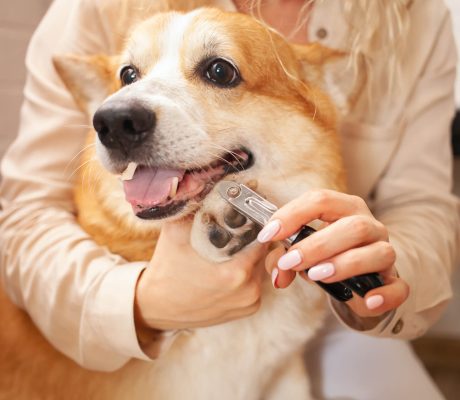Dog training insurance provides coverage for dog trainers in case of accidents or injuries during training sessions. It is essential for protecting trainers and their clients.
When it comes to running a successful dog training business, having the right insurance coverage is crucial. Dog trainers face various risks, such as dog bites or property damage, making insurance a wise investment. In Austin, Texas, where pet ownership is prevalent, having dog training insurance can set trainers apart and provide peace of mind.
By understanding the importance of insurance and the options available, trainers can focus on their passion for training dogs without worrying about potential liabilities. Trustworthy insurance coverage ensures that both trainers and their furry clients are protected in any unforeseen circumstances.

Credit: www.business-insurers.com
The Importance Of Dog Training Insurance
When running a dog training business, having proper insurance coverage is crucial to protect yourself, your clients, and the dogs involved. Dog training insurance provides peace of mind and financial security in case of any unforeseen incidents.
Risks Involved In Dog Training
- Accidental injuries to dogs or clients
- Property damage during training sessions
- Legal claims or lawsuits from dissatisfied clients
- Medical expenses for injured pets
Benefits Of Having Insurance
- Financial Protection: Insurance covers costs of legal fees, settlements, or medical bills.
- Professional Image: Clients trust certified and insured trainers more.
- Peace of Mind: Focus on training without worrying about potential risks.
- Comprehensive Coverage: From property damage to liability claims, insurance safeguards your business.
Types Of Dog Training Insurance Coverage
Dog training insurance coverage includes general liability and professional liability policies to protect trainers from accidents and negligence claims. These policies offer financial security and peace of mind for dog trainers in their line of work.
Dog training insurance is a crucial investment for dog trainers to protect their business from any potential legal and financial damages. There are different types of dog training insurance coverage available in the market. Let's take a closer look at each of them.
General Liability Insurance
General liability insurance provides coverage for any third-party claims that arise due to bodily injury or property damage during dog training sessions. This type of insurance can cover the cost of legal fees, settlement, and judgment. It is a must-have insurance for any dog trainer as it protects their business from any potential lawsuits.
Professional Liability Insurance
Professional liability insurance, also known as errors and omissions insurance, provides coverage for any damages or losses that occur due to a professional's negligence. In the case of dog training, if a trainer fails to provide adequate training or misjudges a dog's behavior, it can result in injury or property damage. Professional liability insurance covers the cost of legal fees, settlements, and judgments that arise due to these incidents.
Animal Bailee Coverage
Animal bailee coverage is a unique type of insurance that provides coverage for any injuries or loss of animals that are in the care, custody, and control of the dog trainer. This type of insurance is ideal for dog trainers who board or house dogs while training. It covers veterinary bills, medical expenses, and other costs that may arise due to injuries or loss of animals.
Dog training insurance is a vital investment for any dog trainer to protect their business from any potential legal and financial damages. General liability insurance, professional liability insurance, and animal bailee coverage are the three types of dog training insurance coverage that every dog trainer should consider. It is essential to choose the right insurance coverage that suits the needs of your business and protects you from any potential risks.
How Dog Training Insurance Works
When it comes to dog training insurance, it's essential to understand how the policy operates to ensure adequate coverage. Dog training insurance works by providing liability protection for dog trainers in case of accidents or injuries during training sessions.
Policy Activation
- Application: Fill out the application form with accurate details.
- Review: The insurance provider assesses your application for approval.
- Premium Payment: Pay the premium to activate the policy.
Claim Process
- Incident: In case of an incident during training, document details.
- Notification: Inform the insurance company promptly.
- Investigation: The insurer investigates the claim for validity.
- Settlement: If the claim is approved, the insurer provides compensation.
Assessing Your Insurance Needs
When it comes to running a dog training business, it's crucial to assess your insurance needs to ensure that you are adequately protected. This involves considering the size of your business, the types of training services you offer, and the potential risks involved in your operations.
Size Of Business
Whether you are a solo dog trainer or you manage a team of trainers, the size of your business plays a significant role in determining your insurance needs. Small businesses may require different coverage levels compared to larger operations. Assessing the scale of your business operations is essential in identifying the appropriate insurance coverage.
Types Of Training Services Offered
The specific types of training services you offer also impact your insurance requirements. This could include obedience training, behavior modification, agility training, or specialized services such as therapy dog training. Understanding the range of services you provide is essential in determining the scope of coverage needed to protect your business.
Cost Of Dog Training Insurance
When considering dog training insurance, understanding the cost is a crucial factor. The cost of dog training insurance can vary based on a range of factors, and it's essential to explore ways to minimize these expenses. Let's delve into the key elements that influence the premiums and effective strategies to reduce the costs associated with dog training insurance.
Factors Affecting Premiums
Several factors play a significant role in determining the premiums for dog training insurance:
- The experience and qualifications of the dog trainer
- The location and size of the dog training business
- The coverage limits and types of insurance policies selected
- The history of insurance claims
Ways To Reduce Costs
There are several approaches to minimize the expenses related to dog training insurance:
- Implementing risk management practices to reduce the likelihood of insurance claims
- Comparing quotes from multiple insurance providers to find the most cost-effective option
- Investing in professional development and safety training to enhance qualifications and reduce risks
- Optimizing the coverage limits based on the specific needs of the dog training business

Credit: www.petcareins.com
Choosing The Right Insurance Provider
When it comes to dog training insurance, selecting the right insurance provider is crucial. Researching providers, comparing quotes, and reading reviews are key steps in making an informed decision.
Researching Providers
Research various insurance providers to understand their coverage options, reputation, and customer service.
Comparing Quotes
Request quotes from multiple insurance providers to compare coverage, premiums, and any additional benefits offered.
Reading Reviews
Read reviews from other dog trainers to gauge the overall satisfaction and experiences with different insurance providers.
Insurance For Different Training Scenarios
Dog training insurance provides coverage for various training scenarios, ensuring protection for both trainers and pets. From basic obedience classes to specialized behavioral training, having insurance safeguards against unexpected incidents during training sessions. Trusting in comprehensive coverage allows trainers to focus on providing top-notch training without worrying about potential risks.
Group Classes Vs. Individual Sessions
When it comes to dog training, there are a variety of scenarios where insurance coverage is necessary. One such scenario is group classes vs. individual sessions. Group classes are typically held in a group setting with multiple dogs and their owners, while individual sessions are one-on-one with a trainer and their client.
Both scenarios require different types of insurance coverage. For group classes, general liability insurance is necessary to protect against any accidents or injuries that may occur during the training session. This can include dog bites or slips and falls.
On the other hand, individual sessions may require additional coverage such as professional liability insurance. This type of insurance protects against claims of negligence or mistakes made by the trainer during the training session.
Board And Train Facilities
Another scenario where insurance coverage is necessary is for board and train facilities. These facilities offer training services where the dog stays at the facility for an extended period of time, typically several weeks to a few months.
Insurance coverage for board and train facilities includes both general liability insurance and animal bailee insurance. General liability insurance protects against accidents or injuries that may occur during the training session, while animal bailee insurance protects against any harm or loss of the dog while in the care of the facility.
It is important for board and train facilities to have both types of insurance coverage in order to protect themselves and their clients from any potential risks or accidents.
Insurance coverage for dog training is essential in protecting both the trainer and their clients from any accidents or injuries that may occur during the training session. Different training scenarios require different types of coverage, such as general liability insurance for group classes and professional liability insurance for individual sessions. Board and train facilities also require additional coverage such as animal bailee insurance to protect against any harm or loss of the dog while in their care.
Legal And Financial Protection
When running a dog training business, it's crucial to have proper insurance coverage to safeguard your interests. Dog training insurance offers legal and financial protection in various scenarios.
Dealing With Accidents And Injuries
In the event of accidents or injuries during training sessions, having insurance can cover medical expenses and legal fees.
Protecting Your Business Assets
Insurance protects your business assets, including equipment, property, and reputation, in case of unforeseen circumstances.
The Role Of Certification In Insurance
Certification And Credibility
Obtaining a certification in dog training not only enhances your skills but also adds credibility to your expertise. With a certified credential, you demonstrate your commitment to professional development and adherence to industry standards, which can positively impact your insurance coverage.
Insurance Benefits For Certified Trainers
Insurance providers often offer specific benefits to certified dog trainers due to their proven expertise and commitment to ongoing education. These benefits may include lower premiums, broader coverage options, and increased trust from insurance companies, ultimately leading to a more secure and cost-effective insurance policy.
Case Studies And Testimonials
When it comes to choosing dog training insurance, it's important to consider the experiences of others. Here are some compelling case studies and testimonials that highlight the value of having the right insurance coverage in the dog training industry.
Success Stories
One dog training professional shared a success story where their insurance coverage helped them navigate a challenging situation. A client's dog was injured during a training session, and thanks to the comprehensive insurance policy, the trainer was able to cover the veterinary expenses without bearing the financial burden personally.
Another trainer recounted a positive experience with their insurance provider after a claim was filed due to property damage caused by a training session. The swift and supportive handling of the claim by the insurance company showcased the importance of having reliable coverage in place.
Learning From Claims
By examining past claims and their outcomes, dog trainers can gain valuable insights into potential risks and liabilities. For instance, a trainer who faced a liability claim due to a dog's aggressive behavior during a training session shared how their insurance coverage protected them from the financial repercussions of the incident.
Another enlightening testimonial came from a trainer who emphasized the significance of professional liability coverage after encountering a legal dispute with a client. The insurance not only provided legal support but also covered the associated legal costs, underscoring the crucial role of comprehensive insurance in safeguarding the trainer's business.

Credit: www.dogtrainerinsurance.com
Frequently Asked Questions
Is A Dog Training Certificate Worth It?
Yes, a dog training certificate is worth it. It gives legitimacy to your abilities and builds trust with customers.
How Much Should You Spend On Dog Training?
You should budget around $30 to $80 per group class or $50 to $120 per hour for private training sessions. It's important to invest in training to foster a healthy relationship and avoid future expenses.
Is It Worth Sending Your Dog Away For Training?
Sending your dog away for training can be worth it to accelerate their education and strengthen your bond. Just ensure the trainer is reputable and involves you in the process for long-term success.
Is Dog Training A Good Investment?
Yes, dog training is a good investment. It helps to build a healthy and positive relationship between your dog and household. Additionally, it can save you a lot of money in the long run by preventing destructive behaviors and potential accidents.
Furthermore, being a certified dog trainer can give legitimacy to your abilities and make customers more comfortable with your services.
What Does Dog Training Insurance Cover?
Dog training insurance typically covers general liability, professional liability, and property damage. It also provides coverage for injuries to pets or people during training sessions.
Conclusion
Dog training insurance is an essential investment for both individual trainers and training businesses. With the potential for accidents and liabilities, having insurance provides peace of mind and financial protection. By securing the right coverage, trainers can focus on their work with confidence, knowing they are adequately protected.











